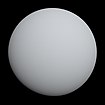HD 210277
みずがめ座の恒星
HD 210277は、みずがめ座の方角にある7等級の恒星で、太陽と似た黄色の主系列星である。地球から約70光年の位置にあり、肉眼では見えないが、双眼鏡では容易に見ることができる。質量は0.99太陽質量程度で、年齢は約75億年と推定されている[3][2]。
| HD 210277 | ||
|---|---|---|
| 星座 | みずがめ座 | |
| 見かけの等級 (mv) | 6.63[1] | |
| 位置 元期:J2000.0[1] | ||
| 赤経 (RA, α) | 22h 09m 29.8657193934s[1] | |
| 赤緯 (Dec, δ) | −07° 32′ 55.163014863″[1] | |
| 視線速度 (Rv) | -20.771 km/s[1] | |
| 固有運動 (μ) | 赤経: 85.462 ミリ秒/年[1] 赤緯: -450.544 ミリ秒/年[1] | |
| 年周視差 (π) | 46.9229 ± 0.0481ミリ秒[1] (誤差0.1%) | |
| 距離 | 69.51 ± 0.07 光年[注 1] (21.31 ± 0.02 パーセク[注 1]) | |
| 絶対等級 (MV) | 5.0[注 2] | |
| 物理的性質 | ||
| 半径 | 1.05 ± 0.08 R☉[2] | |
| 質量 | 0.988 M☉[3] | |
| 表面重力 | 4.31 ± 0.17 (log g)[2] | |
| スペクトル分類 | G8V[1] | |
| 光度 | 0.94 L☉[2] | |
| 表面温度 | 5,553 ± 50 K[2] | |
| 色指数 (B-V) | 0.28[1] | |
| 金属量[Fe/H] | 0.22 ± 0.05[2] | |
| 年齢 | 75+25 −30 億年[2] | |
| 他のカタログでの名称 | ||
| NLTT 53073, SAO 145906, BD-08°5818, Gl 848.4, HIP 109378, Ci 20 1339, GJ 9769, LTT 8887, SPOCS 960, GC 30991, HD 210277, PLX 5356, uvby98 100210277, GCRV 13920, HERZ 16289, PPM 206033, YZ 97 7945. | ||
| ■Template (■ノート ■解説) ■Project | ||
| 太陽 | HD 210277 |
|---|---|

|

|
惑星系と星周円盤
編集恒星の周囲を、質量の大きな太陽系外惑星が公転している[4]。系外惑星を持つ他の多くの恒星と同様に、金属量は高めで、太陽の6割増くらいある。
また、1999年には赤外線の観測から、塵の円盤が発見されたと発表された[5]。この円盤は、恒星から30 auから62 au離れた位置に分布しており、太陽系におけるエッジワース・カイパーベルトのようなものだと考えられた[5]。しかし、スピッツァー宇宙望遠鏡による70 μm、24 μmの波長の観測では、星周円盤の証拠である赤外線の超過を検出することができなかった[6][7][8]。
| 名称 (恒星に近い順) |
質量 | 軌道長半径 (天文単位) |
公転周期 (日) |
軌道離心率 | 軌道傾斜角 | 半径 |
|---|---|---|---|---|---|---|
| b | > 1.23 ± 0.05 MJ | 1.10 ± 0.02 | 442.1 ± 0.4 | 0.472 ± 0.011 | — | 1.0715 RJ |
| 塵円盤? | 30—62 au | — | — | |||
名称
編集2019年、世界中の全ての国または地域に1つの系外惑星系を命名する機会を提供する「IAU100 Name ExoWorldsプロジェクト」において、HD 210277系はアフガニスタン共和国に割り当てられる惑星系となった[11]。このプロジェクトは、「国際天文学連合100周年事業」の一環として計画されたイベントの1つで、アフガニスタン国内での選考と国際天文学連合 (IAU) への提案を経て、2019年12月に最終結果が発表される予定である[12]。
脚注
編集注釈
編集出典
編集- ^ a b c d e f g h i j “Results for HD 210277”. SIMBAD Astronomical Database. CDS. 2019年9月28日閲覧。
- ^ a b c d e f g Ghezzi, L. et al. (2010). “Stellar Parameters and Metallicities of Stars Hosting Jovian and Neptunian Mass Planets: A Possible Dependence of Planetary Mass on Metallicity”. Astrophysical Journal 720 (2): 1290-1302. arXiv:1007.2681. Bibcode: 2010ApJ...720.1290G. doi:10.1088/0004-637X/720/2/1290.
- ^ a b Pinheiro, F. J. G. et al. (2014). “On the mass estimation for FGK stars: comparison of several methods”. Monthly Notices of the Royal Astronomical Society 445 (3): 2223-2231. Bibcode: 2014MNRAS.445.2223P. doi:10.1093/mnras/stu1812.
- ^ Marcy, Geoffrey W.; et al (1998). “Two New Planets in Eccentric Orbits”. The Astrophysical Journal 520 (1): 239–247. Bibcode: 1999ApJ...520..239M. doi:10.1086/307451.
- ^ a b c Trilling, D. E.; et al. (2000). “Circumstellar Dust Disks around Stars with Known Planetary Companions”. The Astrophysical Journal 529 (1): 499–505. Bibcode: 2000ApJ...529..499T. doi:10.1086/308280.
- ^ Beichman, C. A.; Bryden, G.; Rieke, G. H.; Stansberry, J. A.; Trilling, D. E.; Stapelfeldt, K. R.; Werner, M. W.; Engelbracht, C. W.; Blaylock, M.; Gordon, K. D.; Chen, C. H.; Su, K. Y. L.; Hines, D. C. (2005). “Planets and Infrared Excesses: Preliminary Results from a Spitzer MIPS Survey of Solar-Type Stars”. The Astrophysical Journal 622 (2): 1160–1170. Bibcode: 2005ApJ...622.1160B. doi:10.1086/428115.
- ^ Bryden, G.; Beichman, C. A.; Carpenter, J. M.; Rieke, G. H.; Stapelfeldt, K. R.; Werner, M. W.; Tanner, A. M.; Lawler, S. M.; Wyatt, M. C.; Trilling, D. E.; Su, K. Y. L.; Blaylock, M.; Stansberry, J. A.. “Planets and Debris Disks: Results from a Spitzer/MIPS Search for Infrared Excess”. The Astrophysical Journal 705 (2): 1226–1236. Bibcode: 2009ApJ...705.1226B. doi:10.1088/0004-637X/705/2/1226.
- ^ Caer McCabe & Carlotta Pham. “Catalog of withdrawn or refuted resolved Disks”. Catalog of Resolved Circumstellar Disks. 2010年4月3日閲覧。
- ^ Wittenmeyer, Robert A.; Endl, Michael; Cochran, William D. (2007). “Long-Period Objects in the Extrasolar Planetary Systems 47 Ursae Majoris and 14 Herculis”. Astrophysical Journal 654 (1): 625-632. Bibcode: 2007ApJ...654..625W. doi:10.1086/509110.
- ^ “HD 210277 b”. Extrasolar Planet's Catalogue. 京都大学. 2017年1月25日閲覧。
- ^ “List of stars and planets | IAU100 Name ExoWorlds - An IAU100 Global Event”. Name Exoworlds. 国際天文学連合. 2019年9月28日閲覧。
- ^ “Methodology | IAU100 Name ExoWorlds - An IAU100 Global Event”. Name Exoworlds. 国際天文学連合. 2019年9月28日閲覧。
関連項目
編集外部リンク
編集- HD 210277 Aquarii - Jim Kaler
- HD 210277 - THE WORLDS OF DAVID DARLING
- HD 210277 b - New Worlds Atlas(Exoplanet Catalog)
- Image HD 210277
- Stars with Exoplanets: HD 210277 - jumk.de
- HD 210277 - Wikisky: DSS2、SDSS、GALEX、IRAS、Hα、X線、天体写真、天体地図、記事と写真